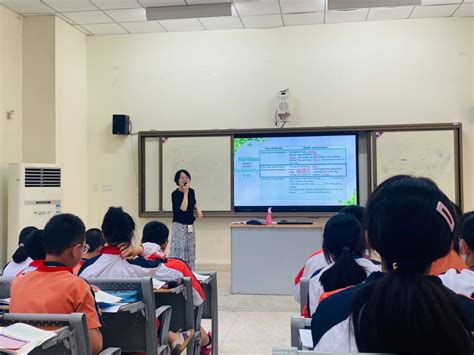初中英语和语文怎么提高
Title: Strategies for Effective Secondary School English and Chinese Language Learning
In secondary school, mastering English and Chinese language skills is crucial for academic success and future prospects. Here are some strategies to enhance learning in both subjects:
English Language Learning:
1.
Immersive Reading:
Encourage reading English materials regularly, including books, newspapers, and online articles.
Utilize graded readers tailored to different proficiency levels to gradually enhance reading comprehension.
2.
Active Listening:
Engage in listening activities such as watching English movies, TV shows, and listening to podcasts or audiobooks.
Practice notetaking while listening to improve listening skills and retention.
3.
Speaking Practice:
Participate in English conversations with peers or join speaking clubs to enhance fluency.
Practice pronunciation by imitating native speakers and utilizing pronunciation guides.
4.
Writing Skills:
Practice writing regularly, including essays, journal entries, and creative writing.
Seek feedback from teachers or peers to identify areas for improvement and work on refining grammar and vocabulary usage.
5.
Vocabulary Expansion:
Learn new words daily and incorporate them into writing and speaking exercises.
Utilize flashcards, vocabulary apps, or mnemonic techniques to memorize and retain vocabulary effectively.
6.
Grammar Mastery:
Study English grammar rules systematically and apply them in writing and speaking tasks.
Practice grammar exercises and seek clarification from teachers or online resources for any areas of confusion.
Chinese Language Learning:
1.
Reading Chinese Literature:
Explore classic and contemporary Chinese literature to improve reading comprehension and cultural understanding.
Analyze texts for themes, literary devices, and historical context to deepen comprehension.
2.
Listening Comprehension:
Listen to Chinese radio programs, podcasts, or watch Chinese TV shows and movies to enhance listening skills.
Take notes while listening and practice summarizing main ideas and key points.
3.
Speaking Practice:
Engage in conversations with peers or native Chinese speakers to improve fluency.
Participate in roleplays, debates, or oral presentations to enhance speaking skills.
4.
Writing Proficiency:
Practice Chinese handwriting regularly to improve character recognition and writing fluency.
Write essays, compositions, or diary entries to strengthen writing skills and vocabulary usage.
5.
Vocabulary Enhancement:
Learn Chinese characters systematically and expand vocabulary through reading and writing exercises.

Use mnemonic techniques or create personalized vocabulary lists to aid memorization.
6.
Grammar Understanding:
Study Chinese grammar rules and sentence structures to enhance writing coherence and clarity.
Practice grammar exercises and seek guidance from teachers or language textbooks for clarification.
CrossLanguage Learning Strategies:
1.
Comparative Analysis:
Compare and contrast English and Chinese language structures, vocabulary, and cultural nuances to deepen understanding in both languages.
2.
Language Exchange:
Pair up with a language partner who is fluent in the other language for mutual practice and learning.
Exchange written compositions or engage in language exchange sessions to improve proficiency in both languages.
3.
Multimedia Resources:
Utilize bilingual resources, such as bilingual books, websites, or language learning apps, to reinforce language skills in both English and Chinese.
4.
Cultural Immersion:
Immerse yourself in English and Chinese culture through cultural events, festivals, and language immersion programs to gain a deeper appreciation for both languages.
By incorporating these strategies into your daily language learning routine, you can enhance your proficiency in both English and Chinese languages, opening up opportunities for academic success and personal growth.











